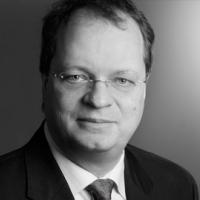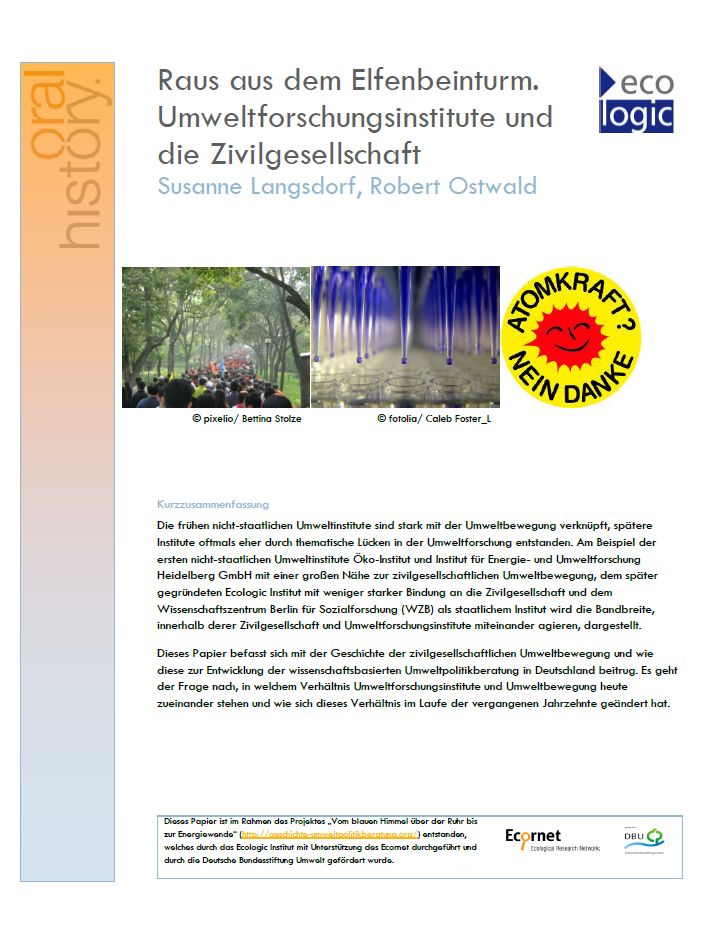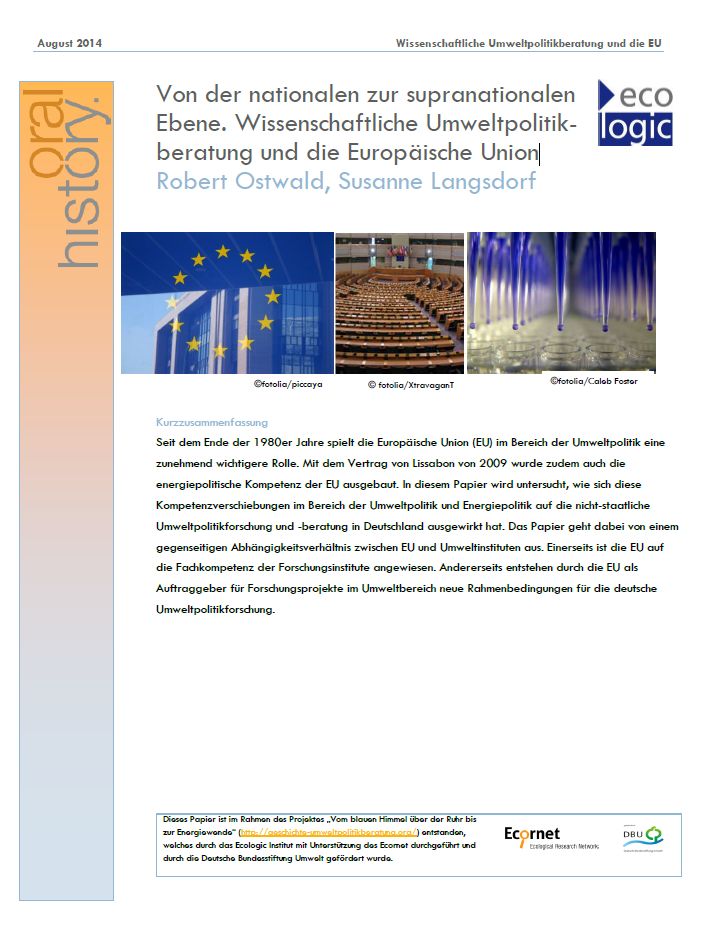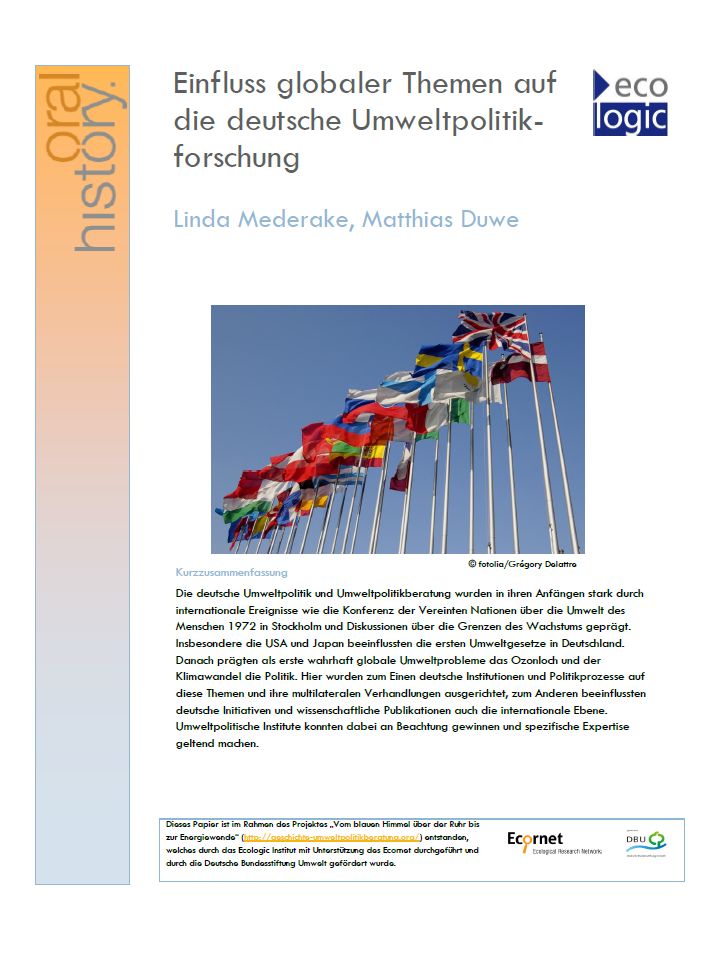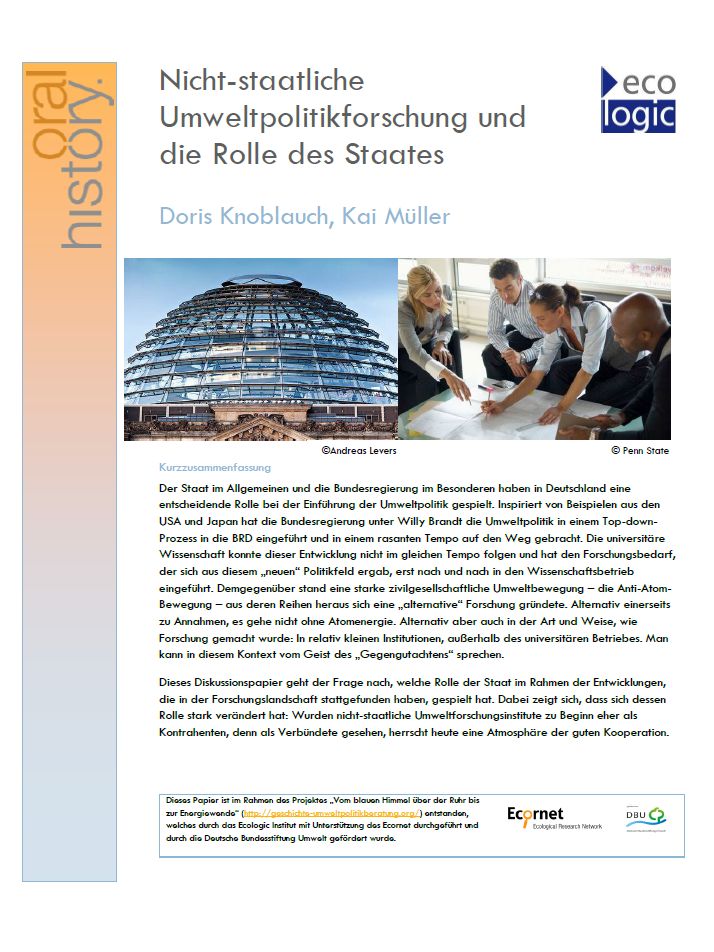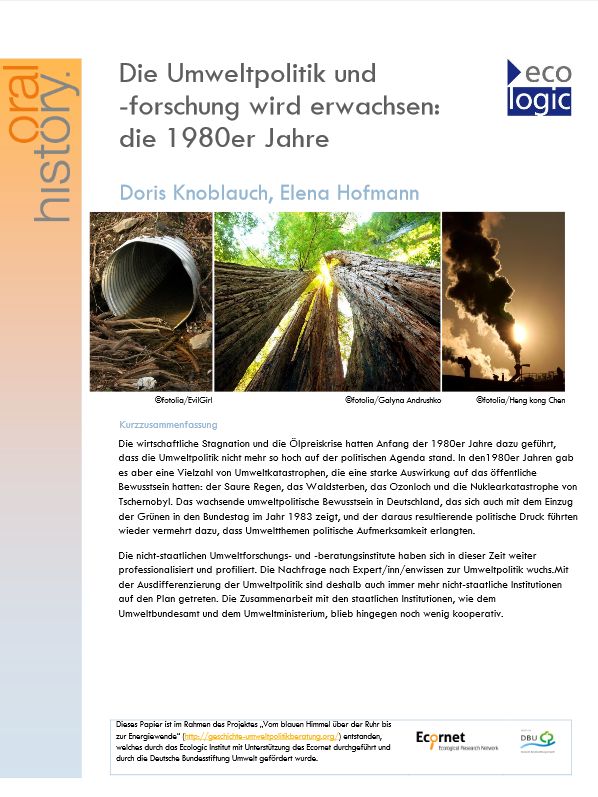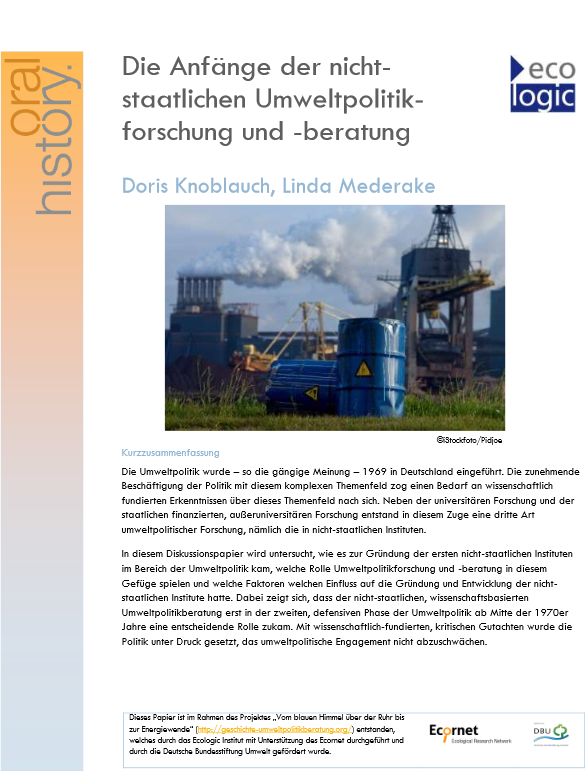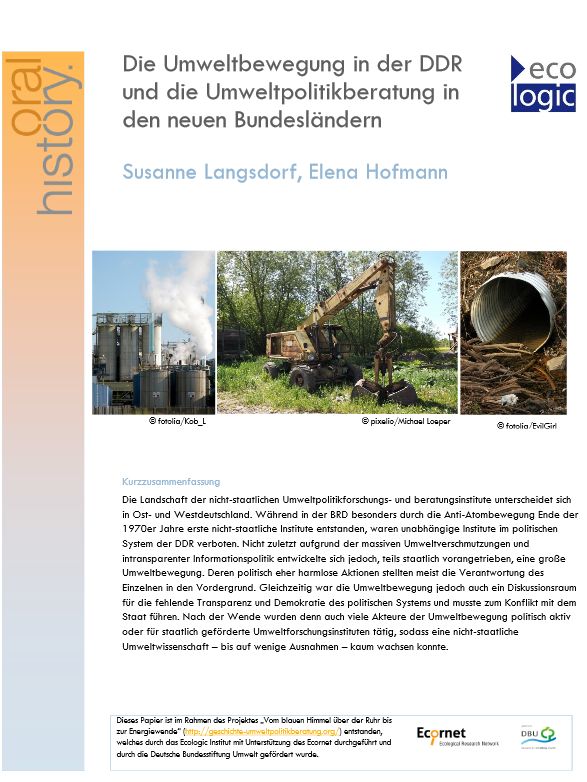Get Out of the Ivory Tower. Environmental Policy Research and Civil Society
- Event
- Date
-
- Location
- Berlin, Germany
- Speaker
For the fifth installment of the series "From the blue sky over the Ruhr to the Energiewende" on 4 December 2013 the experts Prof. Dr. Dieter Rucht and Dr. Thomas Jahn were invited to discuss the relationship between environmental policy research and civil society.
"Counter expertise" was necessary
Prof. Rucht, a former researcher at the Berlin Social Science Center (WZB) and the Institute for Sociology at the Free University Berlin, is an expert for the research on social movements and political protest. Dr. Thomas Jahn is the speaker of the executive board and co-founder of the Institute for social-ecological Research (ISOE) and hence belongs to the forefront of environmental policy consultancy. Prof. Rucht, being the executive board member of the Federal Association of Environmental Citizens Groups (BBU) in the late seventies, had a substantial role in the environmental movement. He could thus elucidate the important linkage between the anti-nuclear movement in Germany and the founding of environmental research institutes. Certain elements of this resistance movement came to the conclusion that a kind of "counter expertise" was necessary to counteract the clear dominance of nuclear energy proponents in the government and the scientific community.
The role of local interests in the protests against the Wyhl reactor
As a student in Freiburg, Thomas Jahn experienced the protests against the nuclear reactor in Wyhl and could thus describe the change in relationship between the inhabitants of rural communities near the planned reactor and the students from Freiburg that were critical of nuclear energy. In the beginning, he explained, the resistance against the nuclear reactor in Wyhl was not motivated by a principled rejection of nuclear energy, but by the personal interests of people near the reactor, such as worries regarding the quality of vineyards or cattle grounds. When the rural community realized that the "alternative, left-wing" students could help their fight against the reactor in scientific questions, the cultural distance between the two groups shrank and the convergence of interests pitted them against the nuclear reactor in Wyhl.
Typically German: association instead of loose structure
Having heard the anecdotes from Freiburg, Prof. Rucht noted the importance of regional networks for the flourishing of social movements in general. Another issue was the differences and similarities between the environmental policy field and other policy fields. Answering the question about why environmental policy in particular has so many independent research institutes, Rucht listed the necessity of a scientific basis for arguments, the high complexity of environmental problems as seen by amateurs, and the early presence of the Green Party as factors specific only to German environmental policy. Dr. Jahn, on the other side, emphasized the zeitgeist from the 70s era. At that time, a lot of people regarded the growing dominance of technology in a critical manner and yearned for a higher societal and political value of ecology. In that context, the two experts discussed why so many environmental research institutes were so successful. One hypothesis laid the focus on the socio-cultural traits of the Germans: Germans have a tendency to establish stable, sustainable organizational structures or 'associations', that holds for football as much as for environmental research. In rough times these would prove invaluable to the survival of the institute.
In the ensuing discussion some of the following questions were discussed:
- Is sustainability a concept relevant for the future?
- What is the institutes' impact today?
- Is the term "civil society" still adequate?
Portions of the conversation (in German) can be watched here:



